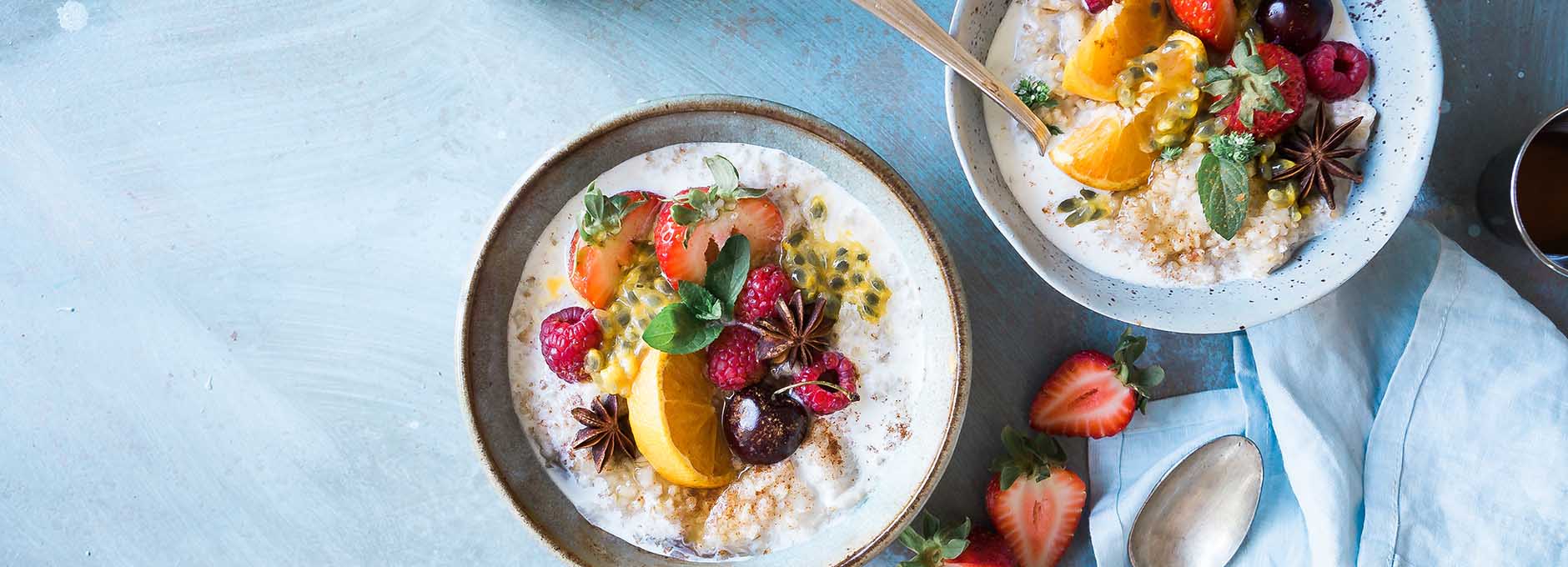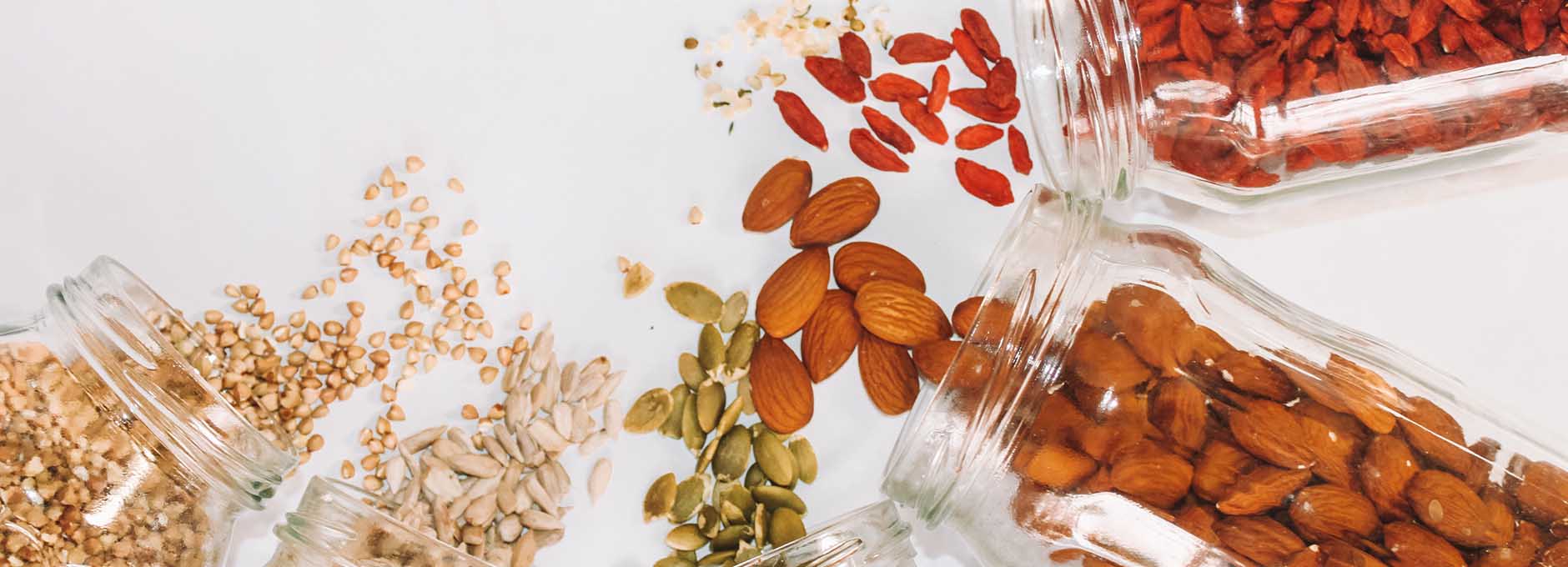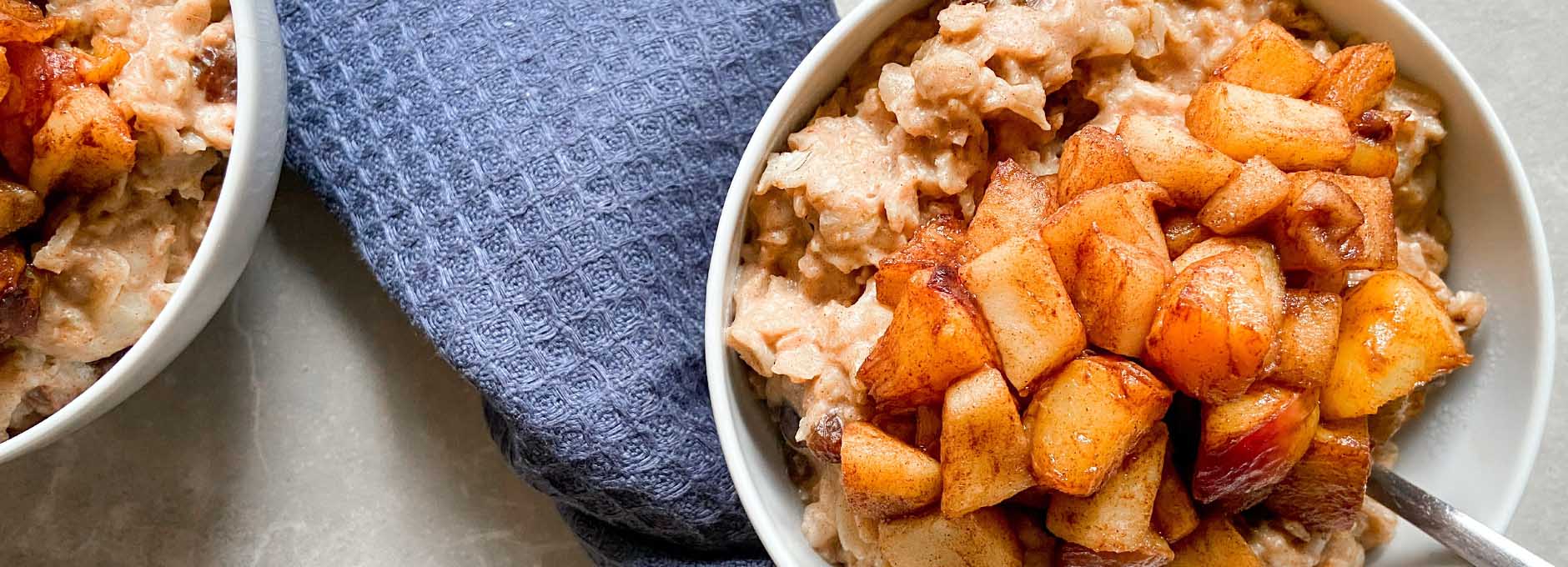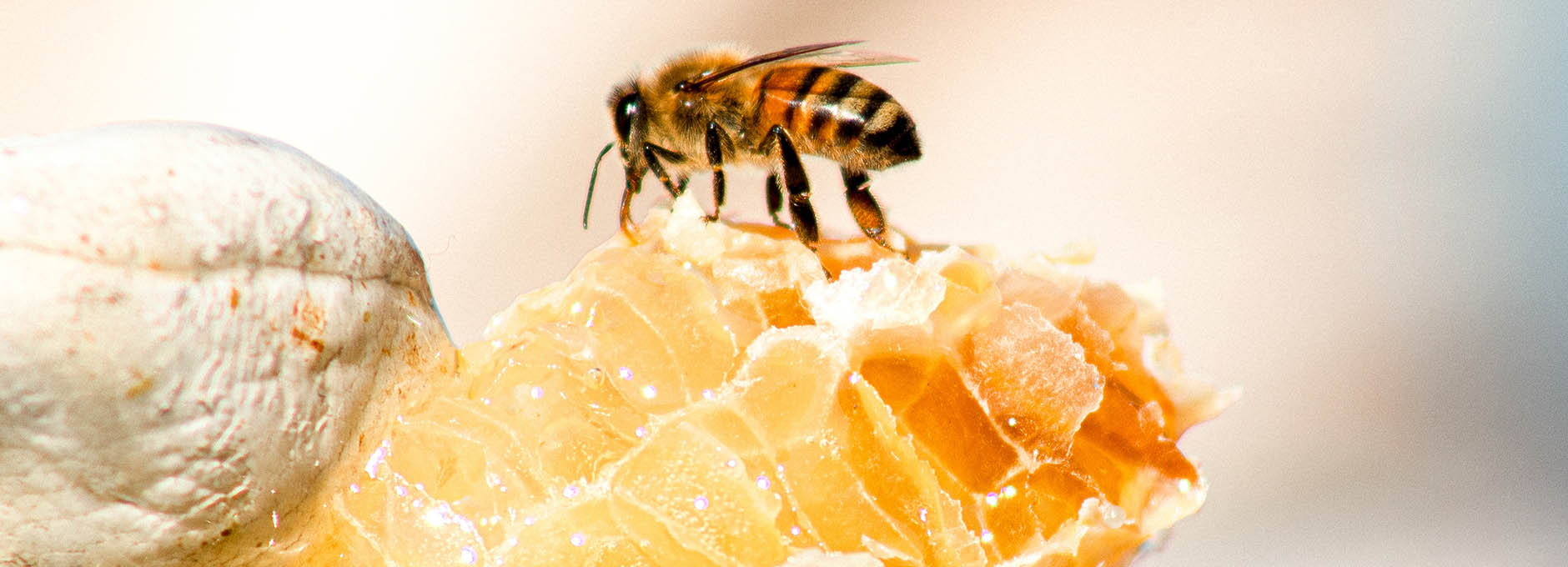15 Foods that Help You Sleep at Night
Eat Better
15 Foods that Help You Sleep at Night

Sleep is as important for our health as good nutrition and exercise. However, getting the recommended 6-9 hours1 can be easier said than done. It’s not news that food plays a role in our energy levels. But, what you might not know is that your diet can help you get a good amount of rest. Here are some foods that help you sleep at night.
Best food to help you sleep
- Nuts
- Rice
- Kiwi2
- Chamomile tea
- Fatty fish
- Tart cherries
- Oats
- Turkey
- Bananas
- Milk
- Lettuce
- Passionflower tea
- Barley grass powder
- Plain yoghurt3
- Raw honey
The relationship between diet and sleep
Different chemicals, amino acids and hormones work together to regulate the sleep cycle, promoting a healthy sleep. These include:
- Melatonin – a hormone involved in your sleep-wake cycle4
- Tryptophan – increases melatonin
- Calcium – helps the brain use tryptophan to create the sleep-inducing substance melatonin5
- Potassium & magnesium – boost sleep throughout the night, helping you stay asleep (as well as drift off)6
- Serotonin – prevents rapid eye movement (REM) sleep7 and reduces stress
- Antioxidants – prevent oxidative stress8, which can lead to certain diseases over time, including heart disease, cancer and high blood pressure9
- Vitamin D – regulates the sleep-wake cycle and can help prevent sleep disorders10
- Zinc – helps people wake up less during the night11
- Copper12 – regulates sleep
These can be found in the different food and drink we consume, which is why it’s recommended to have a varied, balanced diet. What’s more, being vitamin-deficient can result in a poorer-quality, shorter sleep and increase your risk of certain sleep disorders, such as sleep apnea.13
So, what are the best foods that promote a healthy sleep?
1 – Nuts
Almonds, walnuts, pistachios and cashews contain melatonin, along with other nutrients and minerals.
One study carried out in Italy found that a food supplement containing melatonin, magnesium and zinc helped older adults fight insomnia and get a better night’s sleep. All of these can be found in nuts, which is just one reason why they make for a great snack.

2 – Rice
Certain carbohydrates, particularly refined ones, can have a negative impact on sleep. However, there’s some evidence to suggest that rice can improve it. This is because high-glycemic-index carbohydrate meals can help with falling asleep and producing serotonin.14
3 – Kiwi
The humble kiwifruit is low-calorie and packed with nutrients that help you sleep, including vitamin C and potassium. This can decrease the time it takes to fall asleep and increase sleep quality.
4 – Chamomile tea
A relaxing cup of chamomile tea is a firm favourite among many before bed – and for good reason. It contains unique properties that can promote sleepiness, reduce stress and prevent insomnia.15 Outside of these, this drink can boost immunity and reduce inflammation.
5 – Fatty fish
Fatty fish are high in healthy omega-3s, boosting brain health and protecting against heart disease.16 Examples include salmon, mackerel and trout. They’re also packed with vitamin D, which increases the production of serotonin.
6 – Tart cherries
Think sleep, and tart cherries might not immediately spring to mind. However, tart cherries (and tart cherry juice) are packed with potassium, tryptophan, melatonin and magnesium, all of which help when it comes to sleep. So, consuming tart cherries can improve sleep quality and duration.
What’s more, they may offer a vast amount of wider health benefits, including:
- Reducing muscle soreness
- Reducing symptoms of arthritis
- Promoting brain health
- Strengthening the immune system
- Protecting against certain cancers17
7 – Oats
You can’t really go wrong when it comes to oats; they’re a superfood that offers an abundance of health benefits. This carbohydrate can help induce drowsiness before bed, while being a rich source of melatonin.

8 – Turkey
This lean meat is an excellent source of protein, which helps regulate appetite, build muscle and boost metabolism.18 A hidden benefit of turkey is that it’s also a source of the amino acid tryptophan, which increases the production of melatonin, helping people feel tired.
9 – Bananas
Bananas are an excellent source of potassium, while containing tryptophan and magnesium. Together, this makes for a great sleep-inducing cocktail.
10 – Milk
Warm milk before bed isn’t just recommended for children. Milk is a rich source of calcium, and therefore can improve sleep in adults too.
11 – Lettuce
Lettuce can help treat insomnia, and many claim this is because it has a mild sedative-hypnotic effect. This is because it contains lactucarium, which helps promote sleep by sedating the nervous system.19 So, if you struggle to drift off at night, eating more salads might just be the answer.
12 – Passionflower tea
Drinking a cup of passionflower tea every night before bed can help you relax and promote a better sleep.20 This is because it acts as a mild sedative, enhancing the quality of your rest.
13 – Barley grass powder
Barley grass is a common ingredient in many smoothies and health drinks. It can help you maintain healthy blood sugar levels and support heart health.21 It also contains a number of sleep-promoting compounds: calcium, tryptophan, zinc, potassium, and magnesium.
14 – Plain yoghurt
While sugary yoghurt isn’t the best option, dairy products like plain yoghurt are excellent sources of calcium, which can help you drift off. Pair with some berries for a high-protein, healthy dessert. Similarly, cottage cheese is calcium-rich and a natural source of sleep-inducing tryptophan22
15 – Raw honey
Despite containing sugar, raw honey promotes relaxation, easing you to sleep at night. It also promotes the production of tryptophan23

Food and drink to avoid before bed
Of course, this can go both ways; your diet can negatively affect sleeping habits too. Here are some examples of food and drink to avoid:
- Alcohol
- Caffeine (at least 4 hours before bed)
- High-sugar snacks e.g. chocolate, sweets
- Refined carbs like white bread
- Cheese
- Spicy food
- Ice cream24
Along with this, you should avoid eating right before bed – even when it comes to foods that promote sleep. This is because it can cause digestive issues and acid reflux. Try not eating 2-3 hours before you go to bed, if possible.
Fuel your body with sleep-regulating hormones
Different foods impact people in different ways, so not everyone will reap all the benefits mentioned above. However, research shows that certain nutrients, minerals and amino acids can help us sleep better.
Remember, it’s not just about the length of sleep, but also the quality. Sleep is a vital part of health, and something more of us need to make a priority. Our diets can help us do that, as well as live a healthier life in general.